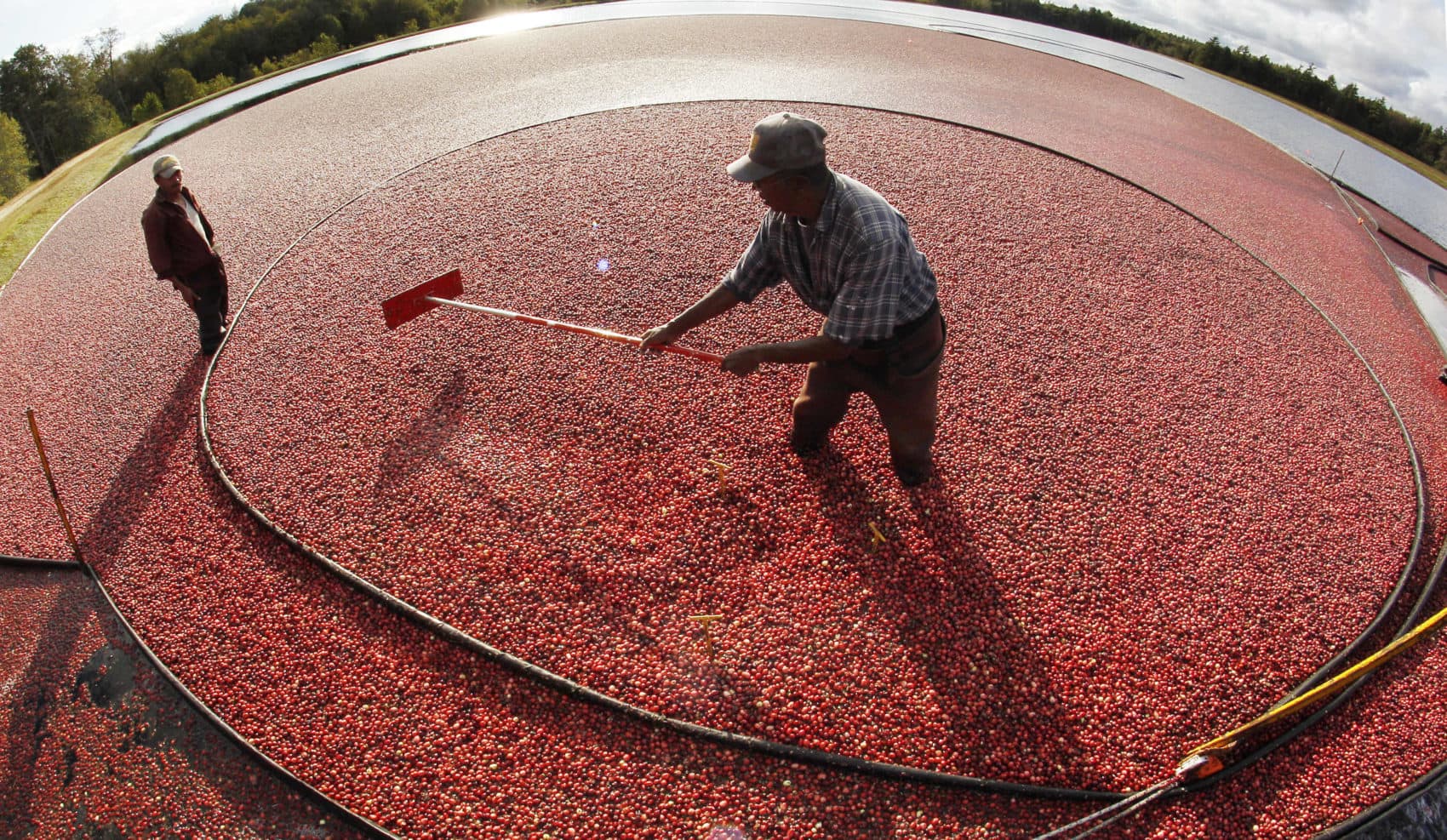Advertisement
Mass. Businesses Brace For Trump's Latest Round Of Tariffs

The list of Chinese products subject to President Trump's latest round of tariffs is long — 5,745 items long, to be exact. That means a wide range of Massachusetts businesses could be affected, from science labs to cranberry farms.
Microscope slides and pharmaceutical glassware are among the Chinese imports that will be hit with an extra 10 percent levy, beginning Monday, along with many elements on the periodic table. The result could be higher supply costs for biotechnology companies, said Jon Weaver, chief operating officer of Massachusetts Biomedical Initiatives in Worcester. MBI's labs are home to 31 startups.
"For new companies, there will be an impact," Weaver said. "For early-stage startups [that] are trying to scrape everything they can get together to get their lab established, an increase in cost on anything is obviously going to make that more challenging. And it's extremely challenging, as it is."
There are other worries, too. Weaver says about one-fifth of the startups in MBI labs receive funding from China or have founders from China.
"They have concerns about being able to access foreign customers or other services of that nature that might be out that way," he said. "So I think the uncertainty is one of the questions and concerns that people are going to have."
Uncertainty is weighing on other business sectors, too. IPG Photonics of Oxford, a maker of laser tools, has seen its stock tumble 28 percent since couching its strong, second-quarter earnings report with an acknowledgment that "the current global macroeconomic trade and geopolitical environment is more uncertain and could remain so."
IPG spokesman James Hillier told WBUR this week that "because we supply products into China primarily from our manufacturing facilities in Germany and Russia, we believe the newly announced tariffs will have limited impact on our ability to supply customers in China. That said, we believe the tariffs are likely affecting the global demand environment.
"In addition, because we price in local currency and do not manufacture products in China, depreciation of the Chinese renminbi represents a headwind to our revenue growth."
Advertisement
Brian Wick, executive director of the Cape Cod Cranberry Growers' Association, scratched his head when he saw that the tart little fruit made the president's list of Chinese imports to tax.
"No one's ever heard of a Chinese cranberry," Wick said. "I don't think they exist — certainly not any quantifiable amount that would be imported."
That's too bad for local farmers because pricier imports could, in theory, enable Cape Cod cranberry growers to charge a little more, too — something they're desperate to do because production costs sometimes exceed sale prices these days.
Wick doesn't expect any such benefit from the new tariffs. Instead, he worries about retaliatory taxes that could make exporting Cape Cod cranberries to China even harder.
China already has responded to Trump's tariffs on $200 billion worth of Chinese goods by adding duties to $60 billion worth of U.S. products.
"If the U.S. increases its tariffs, then China is going to increase theirs," Wick said. "We're just hoping these things get resolved and we can get away from where we're at."
The clock is ticking. Trump's 10 percent tariff on Chinese imports is set increase to 25 percent on Jan. 1.
This segment aired on September 20, 2018.
